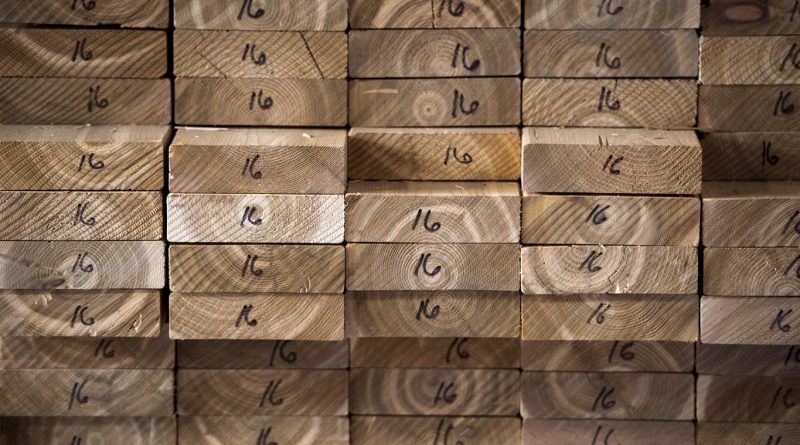Canadian Softwood Lumber Duties
Canada disappointed with hiked softwood lumber duty rates
Key Actors:
- Canadian Federal Government
- Conservative Party of Canada
- Mary Ng; Canadian International Trade Minister
- U.S. Department of Commerce; Executive department of the U.S. federal government, concerned with promoting economic growth
- U.S. Lumber Coalition; Lobby group representing the U.S. in the lumber industry
Tariff Hike
On November 24, 2021, the U.S. Department of Commerce decided to increase duties on Canadian softwood lumber. The final combined anti-dumping and countervailing duty rate for most Canadian producers will be 17.9 percent; twice the previous rate of 8.99 percent.
A Long-Standing Dispute
Canadian softwood lumber has frequently received restrictions on U.S. imports through American countervailing duty and antidumping laws. The issue has been occurring over the past twenty-five years, with Washington announcing plans to double Canadian lumber duties earlier this year. The north-western state also requested a dispute panel regarding Canadian dairy import quotas. The current duty rate of 17.9 percent was originally set at 18.32 percent, though it was reduced to the former after further analysis over the summer by the U.S. Department of Commerce.
The U.S. views this duty hike as a step towards economic equity, as it creates an incentive for consumers to purchase American lumber. By placing a tariff on Canadian softwood lumber, its price is raised at the retail level.
The U.S. has also accused Canada of dumping their product into the former at lower retail prices as the product is subsided. Various trade tribunals in relation to this situation, however, have been ruled in Canada’s favour. Canada has also denied these allegations previously.
Canada’s Response
“Canada is extremely disappointed that the United States has decided to increase the unfair duties it is imposing on Canadian softwood lumber from most producers to 17.9%,” Canadian International Trade minister Mary Ng stated Wednesday in Ottawa.
“These unjustified duties harm Canadian communities, businesses, and workers. They are also a tax on U.S. consumers, raising the costs of housing, renovations, and rentals at a time when housing affordability is already a significant concern for many.”
Ng concluded that the Canadian government will continue to defend the softwood lumber industry through litigation under Chapter 10 of the CUSMA trade deal with Canada, the U.S., and Mexico, NAFTA’s Chapter 19, and at the World Trade Organisation. Official data exemplifies that the U.S. only produces softwood lumber to satisfy approximately 70% of its own need, with virtually all of the rest coming in from Canada.
“Our strong hope is that the U.S. industry will end this decades-long litigation and instead work with us to meet demand for the low-carbon wood products the world wants, including American families,” stated British Columbia Lumber Trade Council president Susan Yurkovich.
American Response
The U.S. Lumber Coalition, in contrast, welcomed the tariffs, stating in a press release that it “remains open to a new softwood lumber trade agreement if and when Canada can demonstrate that it is serious about negotiations for an agreement that offsets the injury caused by Canadian unfair trade to U.S. producers, workers, and timberland holders.”
The Coalition agreed that while the U.S. has not historically produced enough softwood lumber to satisfy its own demand, this situation is no longer the case, as U.S. producers have increased their capacity in recent years and now produce about 3.5 billion board-feet of softwood lumber every year.
“These increases have more than offset any decline in unfairly traded Canadian imports and are enough lumber to build about 1.2 million single-family American homes,” the group says.
Canadian Opposition
Conservative MPs say the softwood lumber duties suggest that Prime Minister Justin Trudeau’s promise of a renewed relationship with the U.S. is failing.
“It’s clear Canada’s relationship with the United States has declined under Mr. Trudeau, hurting cross-border businesses and threatening Canadian jobs,” Conservative MPs Michael Chong and Randy Hoback said in a statement.
This dispute goes back decades, with the post-pandemic recovery of the lumber market placing greater significance in actions from both sides. The rising cost of lumber can add approximately $40 000 U.S. To the price of the average U.S. house, potentially halting the construction of homes across the U.S. Both Canada and the U.S. are in the midst of a housing affordability crisis, with the tariffs potentially inflating the already astronomical mortage interest rates.
“Canada Disappointed with U.S. Final Softwood Lumber Duty Rate, Says Trade Minister | Globalnews.Ca.” Global News, https://globalnews.ca/news/8400874/softwood-lumber-duty/. Accessed 27 Nov. 2021.
“Canada ‘extremely Disappointed’ with U.S. Decision to Raise Softwood Lumber Duty Rate.” Reuters, 25 Nov. 2021, https://www.reuters.com/business/canada-extremely-disappointed-with-us-raising-softwood-lumber-duty-rate-minister-2021-11-25/.
Canada, Global Affairs. “Softwood Lumber.” GAC, 3 Nov. 2008, https://www.international.gc.ca/controls-controles/softwood-bois_oeuvre/index.aspx?lang=eng.
—. Statement by Minister Ng on U.S. Final Duty Rates on Canadian Softwood Lumber. 24 Nov. 2021, https://www.canada.ca/en/global-affairs/news/2021/11/statement-by-minister-ng-on-us-final-duty-rates-on-canadian-softwood-lumber.html.
“Freeland Says Canada May Retaliate against U.S. Softwood Lumber Duty Rate.” The Toronto Star, 25 Nov. 2021. Toronto Star, https://www.thestar.com/politics/2021/11/25/freeland-says-canada-may-retaliate-against-us-softwood-lumber-duty-rate.html.
News ·, Pete Evans ·. CBC. “U.S. Doubles Duty on Canadian Softwood Lumber — Again | CBC News.” CBC, https://www.cbc.ca/news/business/softwood-lumber-1.6262036. Accessed 27 Nov. 2021.

